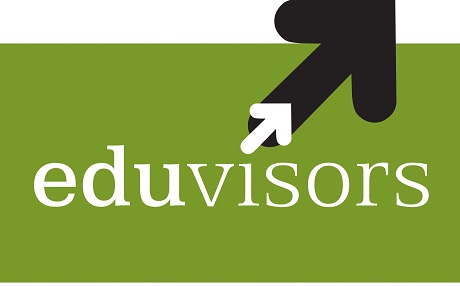The Zero Year Theory – Is it viable?
- August 13, 2020
- Posted by: Eduvisors
- Category: Blogs

The current COVID-19 pandemic has hit the education system hard. All the schools and Higher Education Institutions in India have been shut since the first 21-day national lockdown from 25th March 2020 thus impacting over 253 million school going students and 37.5 million higher education students enrolled across India.
As the Coronavirus cases continue to increase in the country, looking at the current figures, it is inevitable that the coronavirus cases will increase in the coming days and health and safety of children are under question. Under such unprecedented circumstances demand is rising to call A.Y. 2020-21 as ‘Zero Academic Year’
‘Zero Academic Year’ means teaching and learning will happen to the extent possible by using various alternate instruction methods, but there will not be any examinations, grading or promotion to the next class.
A online survey conducted by Local Circles group with 25,000 respondents in India, found that a two third of respondents did not support reopening of schools on September 1 and were worried about the chances of infection to children and elders in the home.
International precedent also indicates that cases spread through schools, with the American Academy of Pediatrics reporting that almost one lakh children tested positive in the last two weeks of July, just as some schools began reopening classes.
Current Scenario of India’s school children:
Current educational situation of students varies widely, depending on age, location and socioeconomic status. Private schools have already gone online with teachers attempting to maintain a regular schedule. For Govt. schools, authorities have brought out an educational calendar with lesson plans and learning activities, and are also beaming classes through dedicated television channels in multiple languages, especially for older children. Government has also issued screen time guideline for pre-primary to Class 12th students. Given that this kind of distance education requires digital access and/or self-motivation and parental involvement, the vast majority of children in government schools have spent the last three months on an extended summer holiday.
Challenges in reopening of schools in India
- No clear road map or timeline for school re-opening
- No clear health protocol for maintaining Health and safety measures while reopening schools
- Covering full academic curriculum lost due to school closures in remaining instructional days in academic year 2020-2021
- Un-equal Access to online and remote learning: only 24% of families have internet facilities in urban area which drop to 15% in rural areas.
Is Zero Year Theory, way ahead?
Although the adoption of blended learning (online + class) for curriculum content delivery is key to ensure the continuity of education following the physical closure of schools, children on an average, likely to experience a learning loss during this COVID affected academic year.
Online schooling requires a change in both the quantity and quality of the teaching capacity & revision in the curriculum,Students spend less time in online learning compared to in-school learning time Younger children may have problems in adapting to this model especially for the online learning sectionThe structure of many existing school buildings may not be appropriate if one wants to maintain physical distancing.
Hence looking at challenges in reopening schools and content delivery mechanisms many activists, teachers associations, parent associations in Delhi, Karnataka, Telangana and Tamil Nadu have demanded to declare AY 2020 – 21 as Zero Academic Year.
Is there any academic loss when curriculum is reduced?
COVID-19 and blended mode of learning in schools may not affect students equally. Students from less advantaged backgrounds can experience more significant learning loss during this emergency period than their more advantaged counterparts. This may be due to differences in financial & non-financial parental support, digital access & students’ digital skills.
Loss reflected in reduction in test score students would be experiencing because of less time spent in learning compared to the amount of time they typically invest when they are in school, stressed environment because of changed delivery mechanism and lack of learning motivation
In broader perspective academic loss will translate into a reduction of available human capital, with negative effects on future productivity, innovation and employment including future lower earnings for the student cohorts directly affected by the lockdown
On the other hand declaring A.Y. 2020-21 a Zero Academic Year will ensure:
- Reduced stress level of blended learning in students.
- No Academic loss and in terms of curriculum and skills learnt
- Safety of children from schools with inadequate infrastructure where social distancing might not be followed
- It will also provide time to governments and schools to ensure teacher training on health & safety of students, digital access to all students, developing new pedagogies in blended learning and developing school infrastructure with better hygiene and health safety measures.
Health is Wealth and life has more value than anything else, thus it is more important to value children’s life and health over all other parameters. Protecting children from this dangerous pandemic is critical. Hence it will not be in common good to reopen schools in riskier environment. Zero Year Theory needs to be followed to mitigate academic loss of students if more than 33% curriculum reduction is needed to be able to reopen schools.
Do you have questions about how Eduvisors can help ? Send us an email and we’ll get in touch shortly.
